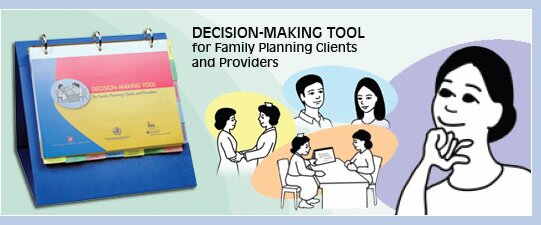Effective Stress Management Techniques for Addiction Recovery

You're facing a critical juncture in your recovery journey where stress management isn't optional - it's essential. When cravings intensify and old patterns beckon, your response to stress can determine your path forward. The techniques you'll discover aren't just coping mechanisms; they're powerful tools that rebuild neural pathways and strengthen your resilience. What if the difference between relapse and continued sobriety lies in strategies you haven't yet explored?
Key Takeaways
- Regular mindfulness and meditation practices strengthen emotional resilience and improve awareness of triggers.
- Physical activity for 20 minutes, 3-4 times weekly, reduces stress hormones and releases mood-enhancing endorphins.
- Nutrient-dense foods stabilize energy levels while adequate sleep (7-9 hours nightly) enhances stress management.
- Building support networks through groups like AA/NA provides accountability and reduces feelings of isolation.
- Recognizing stress as a relapse trigger helps develop personalized coping strategies for long-term recovery.
The Critical Connection Between Stress and Relapse
Stress is a significant factor that can impact recovery from addiction. When an individual experiences stress, their brain may recall the temporary relief that substances once provided, which can trigger cravings. This response isn't solely psychological, as stress also affects brain chemistry, exacerbating withdrawal symptoms and impairing judgment.
Stress can manifest as anxiety and irritability, making it challenging to make rational decisions. These emotional states can lead to impulsive choices, increasing the likelihood of relapse. Acknowledging stress as a primary trigger for relapse is a crucial step in developing effective coping strategies, which are essential for maintaining long-term sobriety.
Research suggests that stress can disrupt the brain's reward system, leading to increased cravings for substances. Furthermore, stress can also impair cognitive function, making it more difficult for individuals to manage emotions and make informed decisions. At Blueview Recovery Center, stress management techniques are integrated into comprehensive treatment plans to help clients develop resilience against this common relapse trigger.
Mindfulness and Meditation as Recovery Tools
Mindfulness and meditation practices can serve as useful tools for managing stress and preventing relapse in recovery. By recognizing cravings and emotional triggers, individuals can develop greater awareness and control over their thoughts and feelings, reducing the likelihood of automatic reactions that may lead to substance use.
Deep breathing and progressive muscle relaxation techniques can help calm the body and mind, lowering the stress response and promoting relaxation. Regular meditation practice has been shown to strengthen emotional resilience, enabling individuals to better manage thoughts and feelings that may contribute to relapse.
Consistent mindfulness practice is associated with improved mental health outcomes, including enhanced sleep quality and emotional stability. These factors are essential for maintaining sobriety and developing effective stress management skills over time.
Physical Activity: Exercise Your Way to Stress Relief
Physical activity is a natural stress reliever that can be beneficial during recovery. Engaging in 20 minutes of exercise, 3-4 times a week, can lead to reduced cortisol levels and the release of endorphins, which have a positive effect on mood.
Activities such as walking, yoga, and dancing can be effective in managing stress during addiction recovery. These exercises can improve sleep quality and enhance self-esteem as individuals achieve their fitness goals.
Additionally, outdoor activities like hiking or cycling can provide mental clarity and emotional stability due to the natural environment.
Regular physical activity can contribute to a stronger foundation for handling cravings and building resilience, which is essential for long-term recovery success. By incorporating exercise into their routine, individuals can develop the necessary skills to manage stress and maintain a healthy lifestyle during the recovery process.
Nutrition and Sleep: Building a Foundation for Recovery
A well-balanced diet and adequate sleep play crucial roles in managing stress during the recovery process. Consuming nutrient-dense foods and limiting refined sugars can help regulate energy levels and reduce cravings.
In contrast, processed foods can lead to mood swings, potentially hindering progress in recovery.
Getting 7-9 hours of quality sleep per night is also essential. Establishing consistent sleep habits, such as regular bedtimes and calming pre-sleep routines, can help improve sleep quality.
Research suggests that individuals who prioritize both nutrition and sleep tend to experience fewer cravings and better mental health outcomes during recovery.
Building Support Systems for Long-Term Stress Management
Effective stress management in recovery is often facilitated by the development of support networks. Connecting with understanding individuals, including friends, family members, and peers in recovery groups, can provide essential emotional support during challenging times.
Participation in support groups, such as Alcoholics Anonymous (AA) or Narcotics Anonymous (NA), can contribute to a more manageable recovery journey. These groups offer a sense of accountability and help reduce feelings of isolation, which can be particularly beneficial for individuals in recovery.
Open communication with trusted individuals can also promote the development of healthy coping mechanisms, reducing the likelihood of relapse.
Therapy sessions can be a valuable component of a support system, providing professional guidance on stress management techniques and helping individuals identify potential triggers.
Conclusion
You'll find that managing stress is essential for your recovery journey. By incorporating mindfulness, regular exercise, proper nutrition, consistent sleep, and strong support systems into your daily routine, you're building resilience against relapse triggers. Don't underestimate these tools—they're not just stress reducers but vital components of your healing process. Commit to these practices, and you'll discover a more balanced path to lasting sobriety.
|









